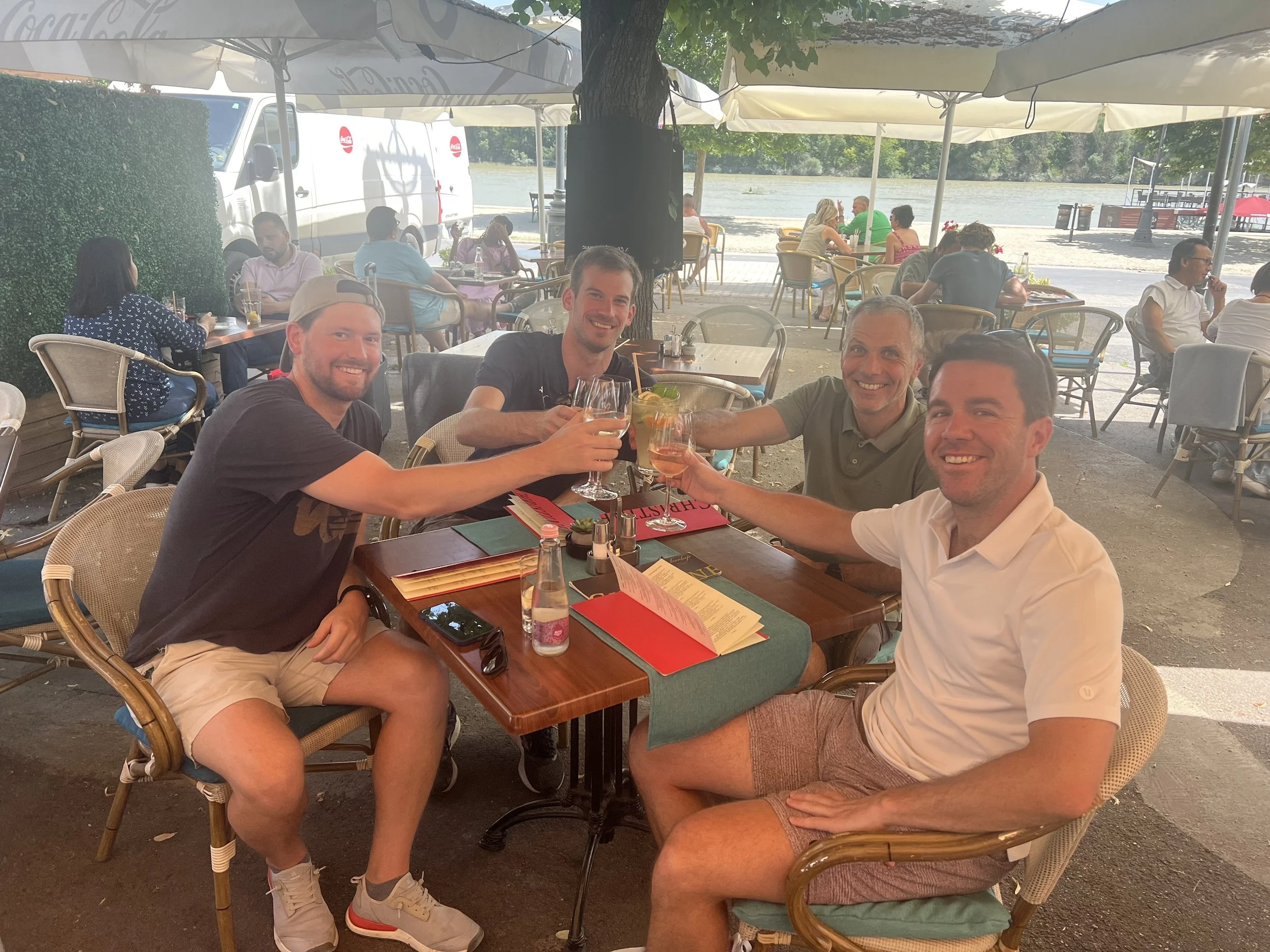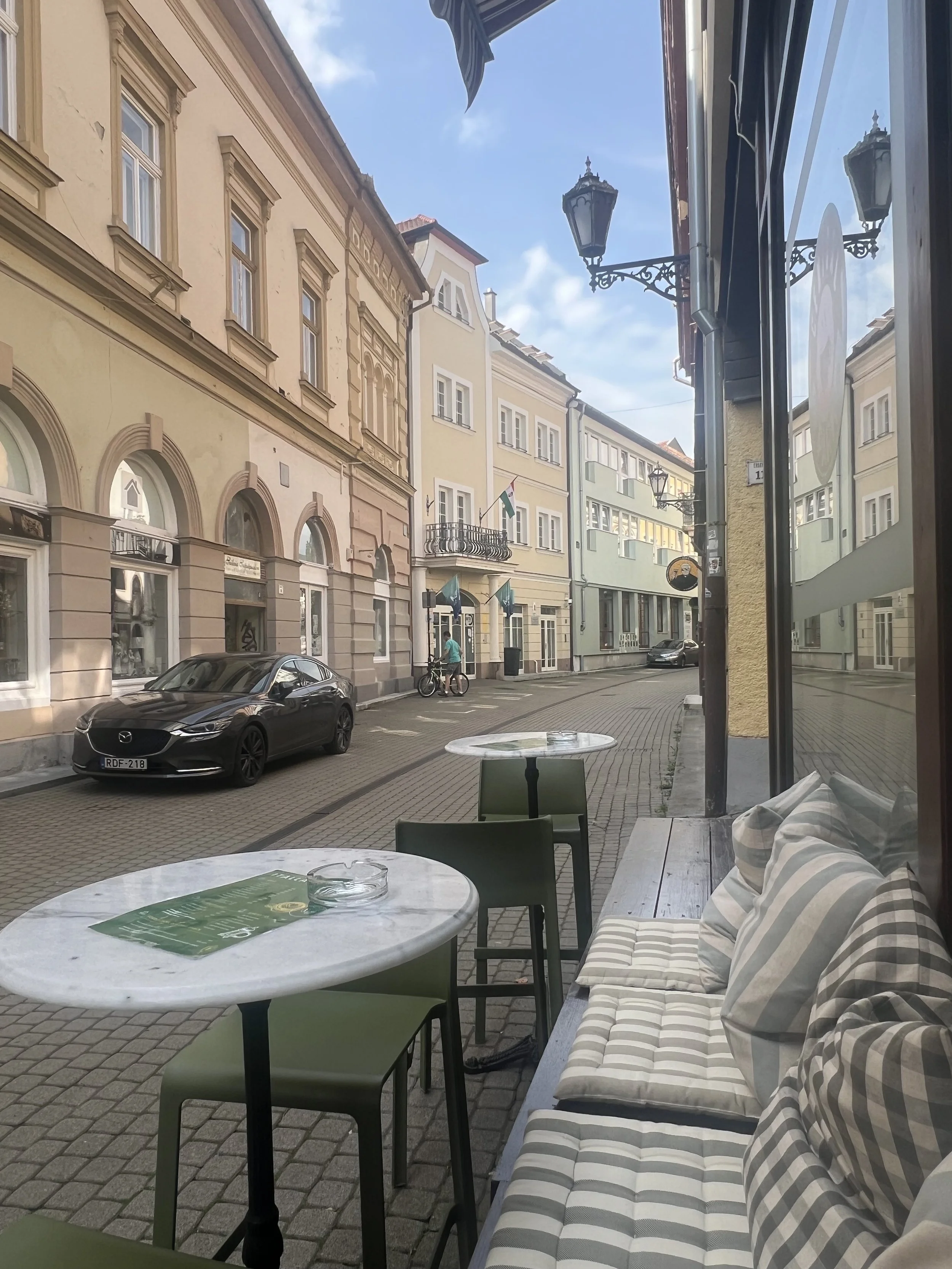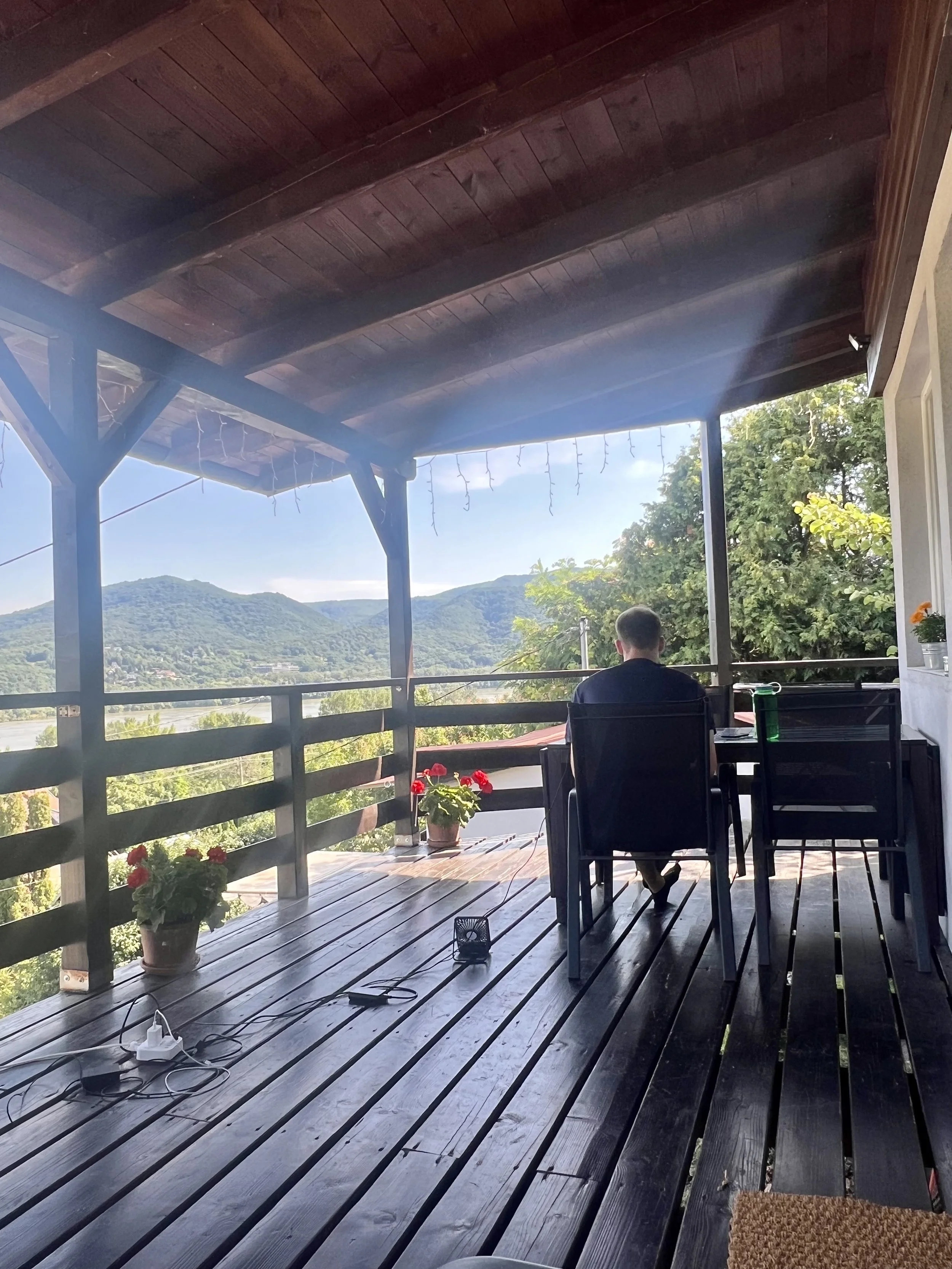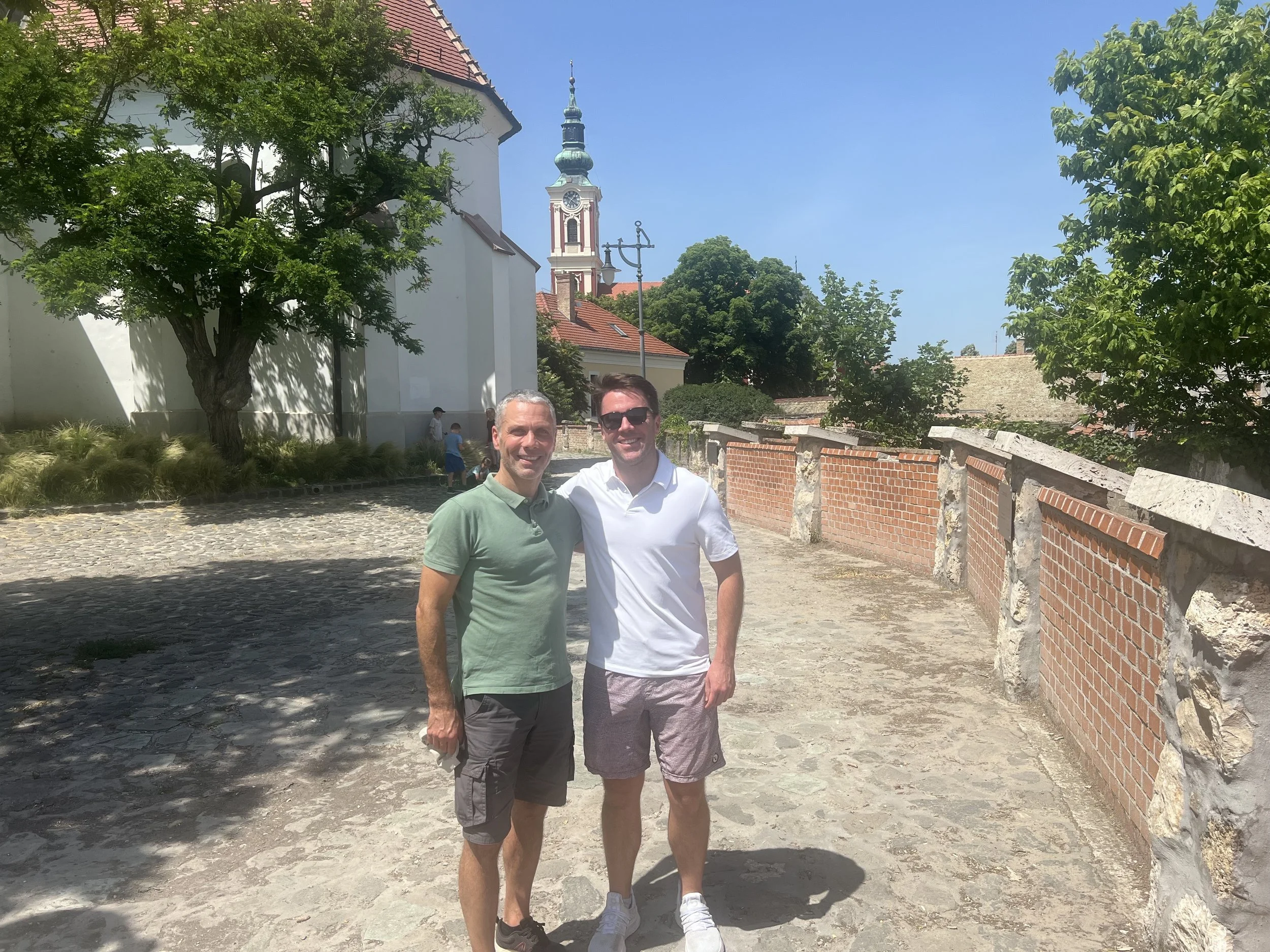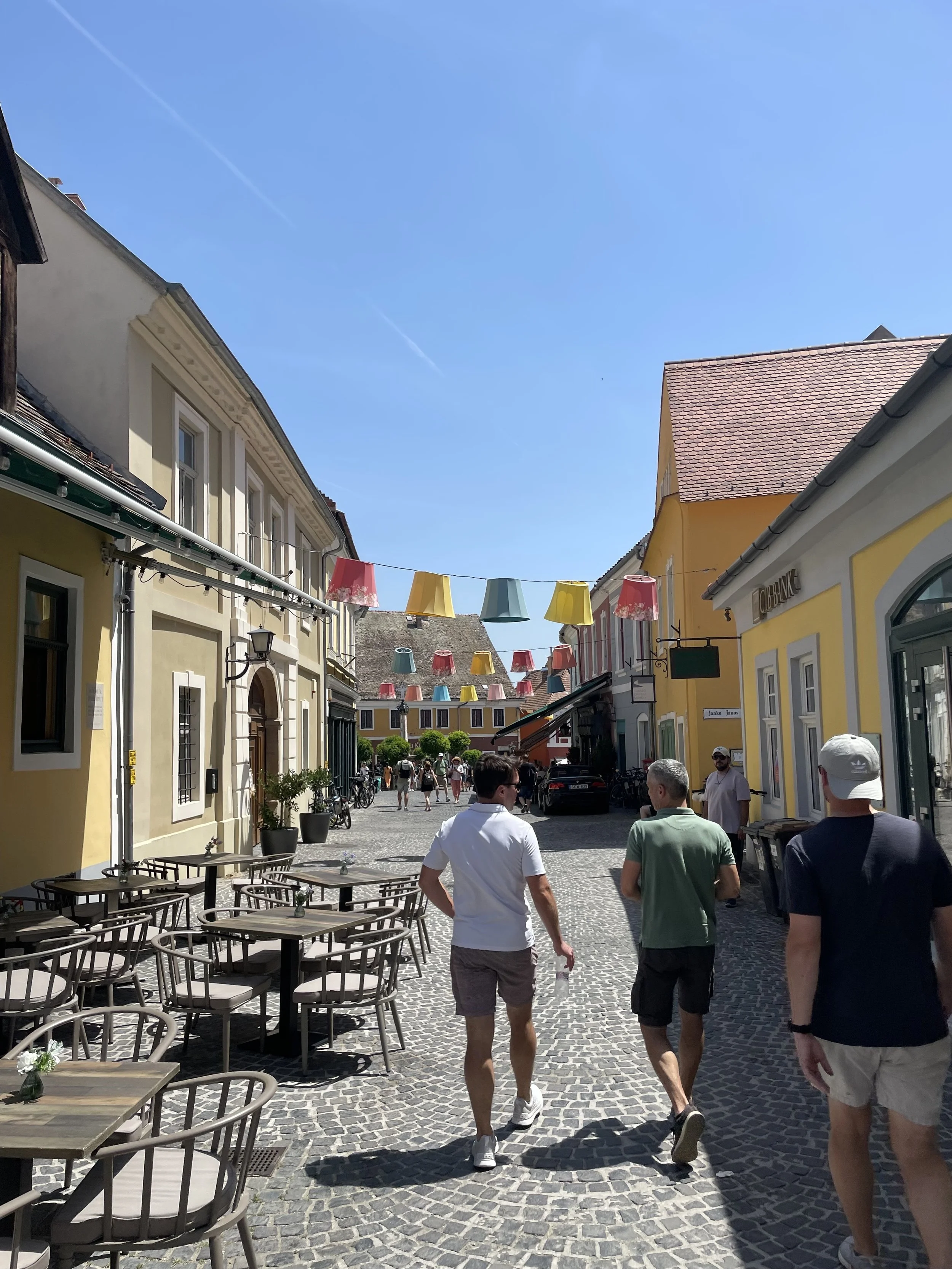Five Things I Learned While Working Remotely in Europe
At Peritus, we pride ourselves on flexibility and believe that work and life need to be more than just balanced today – they need to be fluid. In Part 1 of this blog series, I talked about how our culture is rooted in flexibility through personal life journeys of our team and ways we are continuing to live this out as Peritus celebrates 10 years of business in 2024.
This past summer, I “took one for the team” and test launched our Peritus Workaway program during a three-week adventure in Hungary and Croatia. Inspired by our fellow PRGN agency partners at Toronto-based MediaProfile, our workaway program is being designed to offer creative benefits enabling our team to spend a few weeks working remotely in a new location.
It was an experience of a lifetime to explore new cultures and work in a variety of unique settings, which included:
Lively coffee shops and local bookstores in Budapest, Hungary.
A “Friends” sitcom-themed coffee shop in the quaint Hungarian town of Eger that played popular American 90s music hits throughout the day.
A rural Airbnb overlooking the Danube River in Nagymaros, Hungary.
A high-rise apartment in the bustling city center of Zagreb, Croatia.
Here are five things I learned while working remotely and traveling to Europe for three weeks (and more to come on our official Workaway launch). If you don’t have a similar program at your workplace (yet), these five lessons and friendly reminders that can still be applied for any job setting.
1) Optimize Your Workday
It turns out we don’t need eight hours of online overlap time with our network every day. In fact, working on a different time zone helped me plan out my day more efficiently to peak at the right moments.
With a 7-hour time advantage on my side, I spent my mornings with a mix of sightseeing and completing focused projects. It gave me a nice peace of mind knowing that I wouldn’t hear from anyone in the U.S. until at least 2 or 3 p.m. By working this type of “split shift,” I optimized my workday to spend mornings on deep work before filling my extraversion cup with virtual meetings in the late afternoon and evenings.
2) Slow and Steady Wins the Race
With 25 countries now under my belt, I have taken many international trips that felt like a sprint to the finish line. Fortunately, this was not one of those trips. Over 21 days, we chose four destinations as our home base and spent anywhere from 4-8 days at each location.
Creating temporary home bases is crucial to gain a sense of stability for longer travel and remote working. Whether being a repeat guest at my favorite coffee shop or settling into a comfortable Airbnb to relax or do laundry, having mini routines provided normalcy to help me work more effectively.
3) Embrace Curiosity in Unexpected Moments
Some of the most memorable moments were unexpected conversations or off-the-beaten-path experiences with locals. We learned about Hungarian history on a walking tour with our Public Relations Global Network friend and colleague, Gabor Jelinek. We tasted Hungarian wines and learned about life during the Communist regime vs. today’s Hungarian government. We enjoyed a traditional Croatian summer BBQ feast hosted by a family friend in Zagreb. We learned about the rise in Croatian tourism from Game of Thrones and the importance of maximizing work output during peak tourist season.
You don’t have to go far to enjoy similar experiences at home. By showing genuine curiosity with friends, colleagues, or clients, you can uncover more of those unexpected moments that extend beyond a traditional meeting agenda or to-do list.
4) A Little Effort Goes a Long Way
Nice people are everywhere if you take the time to meet them where they are. Although Hungarian is one of the hardest languages to learn, my partner Mikey spent months in advance of our trip putting his Duo Lingo skills to the test. He mastered a core set of Hungarian words and phrases and served as our de-facto translator throughout our time in Hungary.
It was noticeable to see the difference in the way locals treated us once we attempted to speak their own language. Similarly, at work, people will be more receptive to collaboration, advice, or feedback if you do your research, listen actively, meet them halfway or put yourselves in their shoes.
5) “There is Always Tomorrow – Take it Easy”
At our last stop in the Coastal Island of Vis, Croatia, we enjoyed a nice chat with a pastry shop owner. She was a longtime nurse who made a career pivot after struggling through the pandemic and fulfilled a lifelong dream of opening her own pastry shop. On the wall of the pastry shop, a sign read with the popular Croatian motto:
“Pomalo – the way we do things and see life. There is always tomorrow, so take it easy.”
She said having that sign in the shop helps her take a deep breath and get through the tough days as a new entrepreneur. It was a simple, yet refreshing reminder that there is more to life than work and to avoid taking ourselves or our jobs too seriously during bad days or stressful moments. There is always tomorrow.
OUR TAKEAWAY IS THIS
Regardless of your personal situation, there are small changes you can make to work more effectively and improve relationships with your peers, bosses, clients, or other stakeholders.
By optimizing your workday, embracing curiosity, meeting people where they are, making the extra effort, and avoiding taking yourself too seriously, you can have good days and encourage those around you to do the same.


